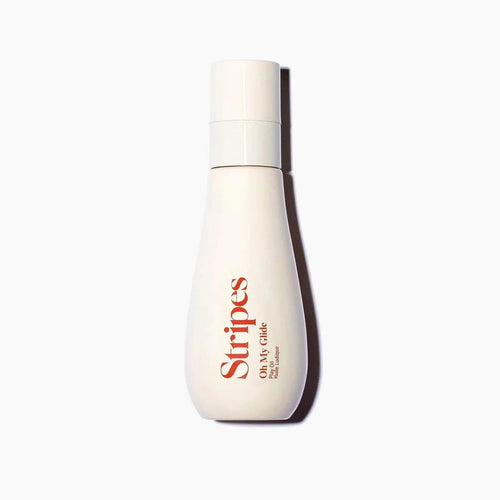Since when did our daily downward dogs go from om to ow!?
When we’re used to being active, achy muscles and joints can seem like an insult. How dare our fit bodies rebel against us? Waking up with achy joints and muscles can also be alarming (especially when a certain virus is going around).
While we may just chalk it up to getting older, it’s actually more complicated than that. The good news is that there are ways to help and even improve pain caused by a lack of joint lubrication.
What causes menopause-related muscle and joint pain?
If you’re in or approaching menopause and finding yourself feeling creaky, the likely culprit is plummeting estrogen levels. When these levels decline, there may be an increase in inflammation, causing discomfort and menopause-related arthritis.
Joint pain or arthralgia appears to increase in women with menopausal transition and is thought to result from reduction in estrogen levels.
What can I do to fight joint pain and muscle aches?
Here are a few things you can do to get comfortable and keep moving when your hormones (or lack thereof) have you wincing in pain.
Move your body.
You don't have to pop ibuprofen like candy until your hormones level out.It might seem counterintuitive to move when you’re hurting, but exercise is an important building block of well-being, especially during menopause. Adding low-impact activities to your daily routine such as yoga, walking, or swimming can help improve mobility, lubricate your joints, and allow for more pain-free movement.
Along with these aerobic activities, consider adding weight training to your routine. Strength training is proven in supporting the muscles surrounding joints and keeping them stable during movement — and the more stable your joints are, the less likely you’ll experience pain or injury.
Hormones may help. A recent 12-week study of women found that by combining strength training with the estrogen patch improved muscle mass by about 8%.
Load your diet with anti-inflammatory foods.
Inflammation is a major reason for aches and pains during menopause. Thanks to swelling and tissue buildup during inflammation, your nerves send a signal to your brain that triggers pain and discomfort in the area.
In the effort to fend off inflammation, it helps to eat foods that are rich in antioxidants (think broccoli, avocados, spinach, berries, and green tea) as well as anti-inflammatory foods (like fatty fish, cherries, lentils, chia seeds, and dark chocolate). Highly inflammatory foods to avoid include any refined carbohydrates, fried foods, red meats, and sweets or soda.
Take your water bottle everywhere.
As if you needed another reason to invest in that oversized travel mug, staying hydrated can stave off menopause symptoms including joint and muscle soreness. During menopause, your body isn’t able to retain water like it used to. Dehydration can pull water from your body’s tissues, resulting in joint and muscle pain. Extra moisture can help keep your tissues moist and supple and improve joint mobility, so aim to increase your water intake. Limit your consumption of dehydrating beverages such as alcohol, soda, and coffee.
Stave off stress.
When you’re under chronic stress, your body releases the hormone cortisol, which can trigger inflammation in your body. Combined with a drop in estrogen levels, stress and menopause become the perfect storm for pain and swelling.
You might not be able to control all the stressful circumstances in your life, but you can make yourself more resilient to them. Exercise is a great way to fend off stress levels, as are mind-body practices like meditation, yoga, deep breathing, and mindfulness exercises. Sharing your worries with a loved one or a therapist can also help you manage your stress levels. Either way, making time for yourself is an effective and kind way to reduce the inflammation that’s making your body hurt.
Try turmeric.
Another beneficial way to fight off muscle and joint pain during menopause is by consuming turmeric, a spice that’s been shown to reduce inflammation. Try adding turmeric to a recipe to boost its flavor and nutrition. Adding black pepper can make it even more effective.
Not a cook? Many health stores sell supplements that contain curcumin, the inflammation-fighting polyphenol in turmeric. Just make sure to first ask your PCP or gyno whether a dietary supplement is safe for you.
When should you talk to your doctor?
If your joints or muscles are bothering you and the pain isn’t letting up with over-the-counter treatments, your gyno or primary care provider may want to rule out other causes. It’s all good: The sooner you address your symptoms, the sooner you’ll feel like yourself again.No matter how you spin it, menopause can be uncomfortable — but it shouldn’t interfere with your ability to function in everyday life.





